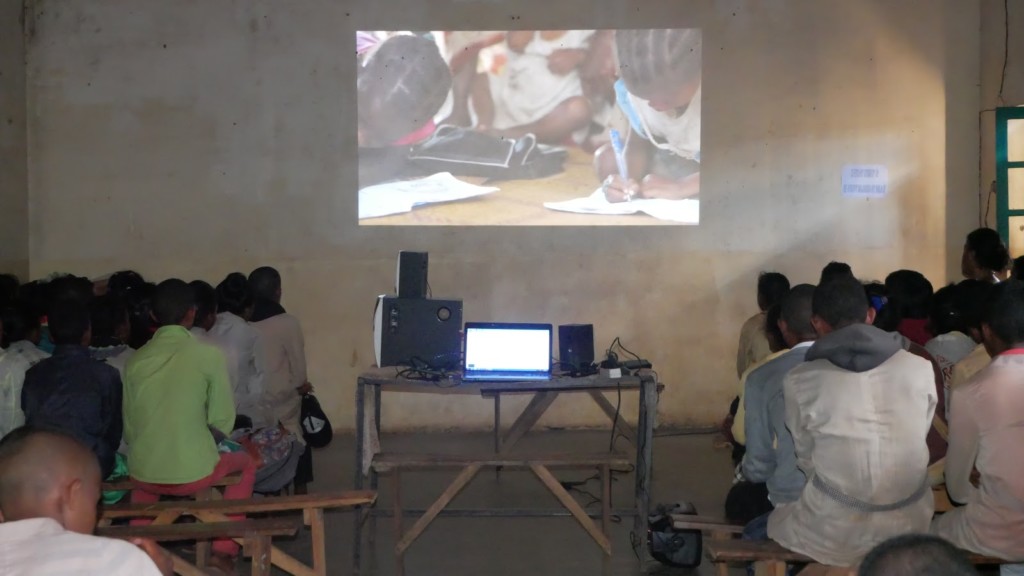Reading Time: 3 minutes
This blog post is adapted from a post on the EdTech Hub website (https://edtechhub.org). Full acknowledgement below.
Björn Haßler
Director of Research
Following on from our recent blogs introducing the Hub and our focus on research, innovation and engagement, over the coming weeks the members of the Research Sphere will be writing about their work so far and introducing themselves and what has brought them to join the EdTech Hub. The first of these posts have been written by Björn Haßler.
I’m Dr Björn Haßler, one of the three Directors of Research for the programme. Research, and particularly at-scale research, is a core focus for the #EdTechHub and that’s why we have three Directors of Research, who will also introduce themselves. I am — we all are — extremely happy that we have been awarded the programme. We, like all our competitors, worked hard for around 1.5 years until the final submission. However, this work paid off! It means we can get going on the important mission.
Here are a few things about my interests. My route to teaching and learning in low-income countries was a little indirect, but I suppose this holds for many EdTech practitioners and researchers. My PhD (now around 20 years ago) was in mathematics, with a practical focus on numerical models in climate change. During this time, I became interested in ‘public engagement in science’, which led to various projects (such as BlueSci and what later turned into Streaming Media Service) and eventually to working with teachers and low-income countries.
My research interests include teacher professional development and learning in resource-constrained environments (low-income countries and regions, including regions in Sub-Saharan Africa, South-East Asia, etc). I’m particularly interested in peer-facilitated, school-based approaches with distributed leadership because these appear to have a more favourable balance between scalability, value for money and effectiveness.
Another interest (perhaps a bit more obvious, given my current role) is the use and role of technology (and digital) in education. I’m quite sceptical of some common approaches (such as tablets for children) because often these just aren’t scalable. I often say that there’s no question that technology use can effectively contribute to children’s learning in principle. For evidence, see the EEF toolkit here; what you also see is that this overview table (also from the EEF toolkit) rates different interventions by impact (on children’s learning) and cost. This leads us to the right question to ask: How does using technology (in an intervention) compare to using non-tech resources (in a comparable intervention)? In other words, what is the added advantage of using EdTech? How much extra learning can you get (in specific low-resourced contexts, such as many parts of rural Sub-Saharan Africa) for what cost per child? What is the right blend of approaches if the resources are constrained?
Let’s talk about some less common approaches and swing back to teacher professional development: We know that (the right kind of teacher professional development) can have a strong impact on children’s learning. What if you can use technology to enhance teacher learning? Then your hardware cost goes down from a cost per pupil (say 1000 pupils at a school) to a cost per teacher (say 20-40 teachers), gaining a factor of around 30 in hardware cost alone. Of course, you may not need one device per pupil, but likewise, you may not need one device per teacher. So what would you use that device for? Well, we do know that, e.g., video plays an important role in teacher development: Teachers watching videos of other teachers’ practice, teachers recording their own practice for the purpose of discussion and reflection.
So – starting to formulate some ideas for our tentative research agenda – what if you ran one teacher professional development programme without technology support and you ran a very similar teacher professional development programme but with technology support? This would allow you to determine the ‘differential’ impact of technology support: What is the impact of introducing technology (for teachers) on children’s learning? Clearly, this would have to be a fairly long-term experiment (at least one year), but you’d learn some very interesting things.
Look out for the upcoming posts from my fellow Directors of Research, Sara and David, and from the wider research team. Interesting times ahead at the #EdTechHub.
Creative Commons Licence. This blog post on opendeved.net is available under Creative Commons Attribution 4.0. You — dear readers — are free to share (copy and redistribute the material in any medium or format) and adapt (remix, transform, and build upon the material) for any purpose, even commercially. You must give appropriate credit, provide a link to the license, and indicate if changes were made. You may do so in any reasonable manner, but not in any way that suggests the licensor endorses you or your use.
Creative Commons acknowledgement for this blog post. Appropriate credit: The blog post is a minor adaptation of a content page appearing on The EdTech Hub (edtechhub.org) website at https://edtechhub.org/70-years-is-too-long/, and is available under Creative Commons Attribution 4.0. Non-endorsement. We note that giving credit and building on this content does not in any way that suggests the licensor endorses opendeved.net or opendeved.net‘s use of the content.

